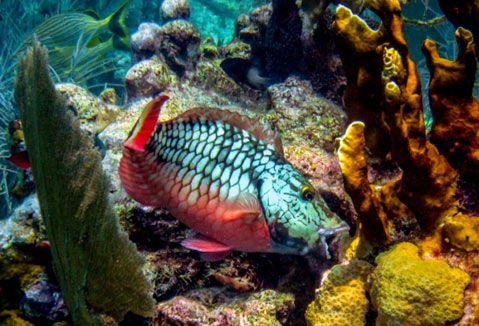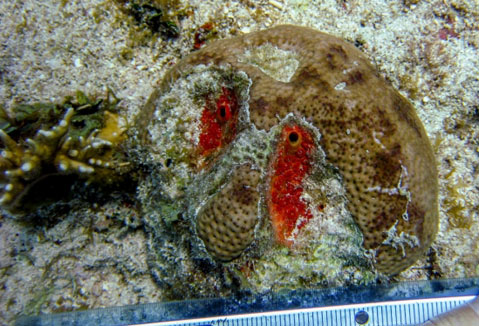Weakened Corals Can Succumb to Parrotfish
Florida Keys Experiment Simulated Nutrient Pollution and Climate Factors

Following on the corals research written up in Ecology Letters last November, a recent paper co-authored by UCSB ecologist Deron Burkepile finds that parrotfish bites can lead to death in weakened corals.
The earlier paper examined the damaging effects of too much nitrogen and phosphorus nutrition and the effects of climate change in corals, and also in soil microbes. In the study of Florida Keys corals published in Nature Communications on Tuesday, scientists reported on a three-year field experiment that simulated overfishing and nutrient pollution.

Because of the ongoing losses worldwide of coral reefs — necessary protection for coastal and island communities — the Florida study was undertaken by researchers from UCSB — including Andrew Shantz, Catharine Pritchard, Nathan Lemoine, and Burkepile — Oregon State University, including lead author Jesse Zaneveld; U of Florida in Gainesville; and SymbioSeas. The added stress factors in the study led to destabilized microbiomes, heavier presence of pathogens, and a resulting twofold increase in disease and eightfold increase in death among the corals. When above-average temperatures were added, the microbiome — or bacterial communities — in unhealthy corals got worse, and 80 percent of coral deaths occurred during the hot season.
As for the parrotfish bites, the algae among corals have always fed parrotfish, which rasp at corals as they eat away the algae with their beak-like teeth. What happened during the field experiment was an inability of the corals, stressed by the results of heat and nutrient pollution, to fight off opportunistic diseases at the bite sites. What had been a normal relationship between fish, algae, and coral, became a deadly one.



